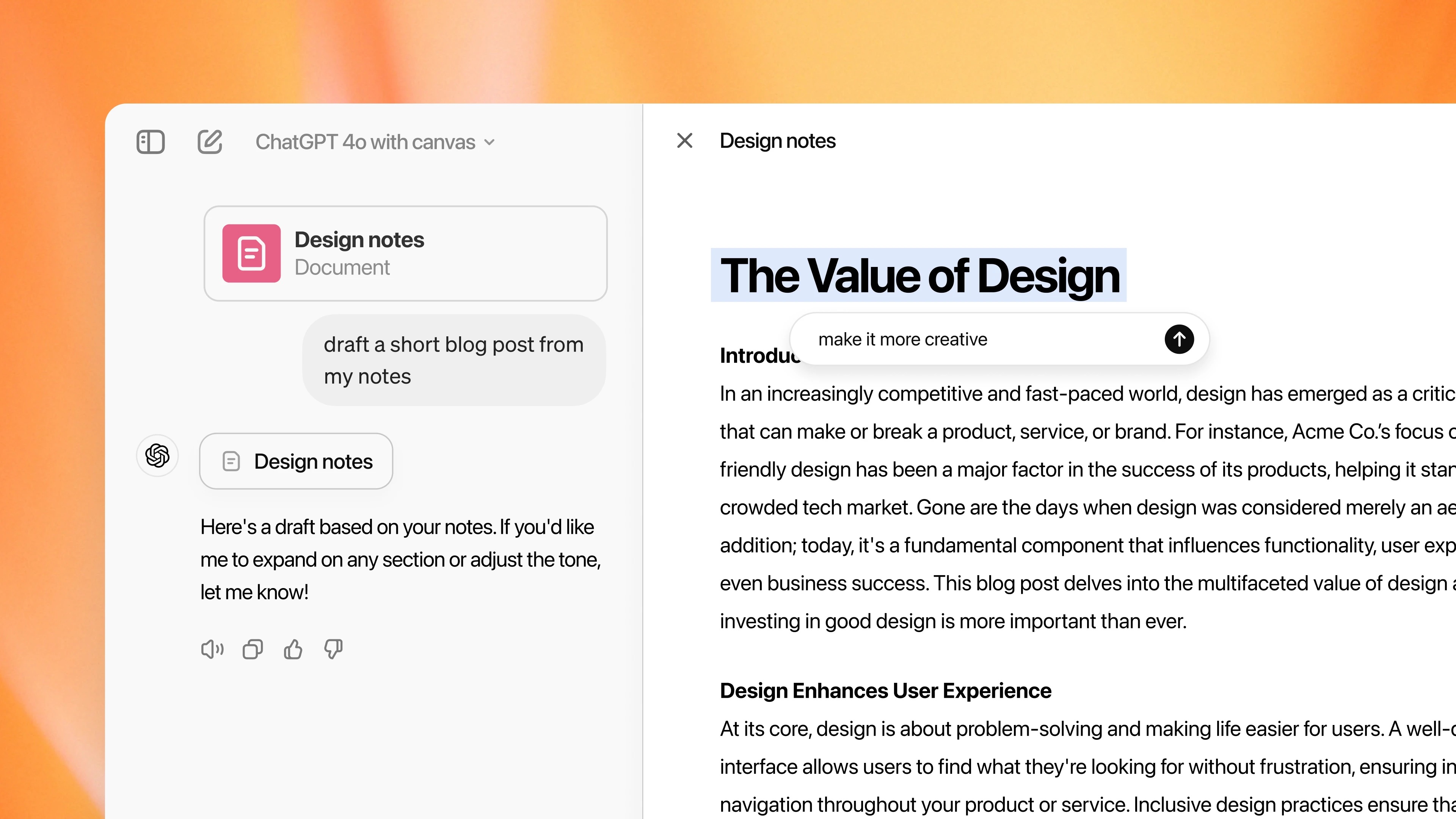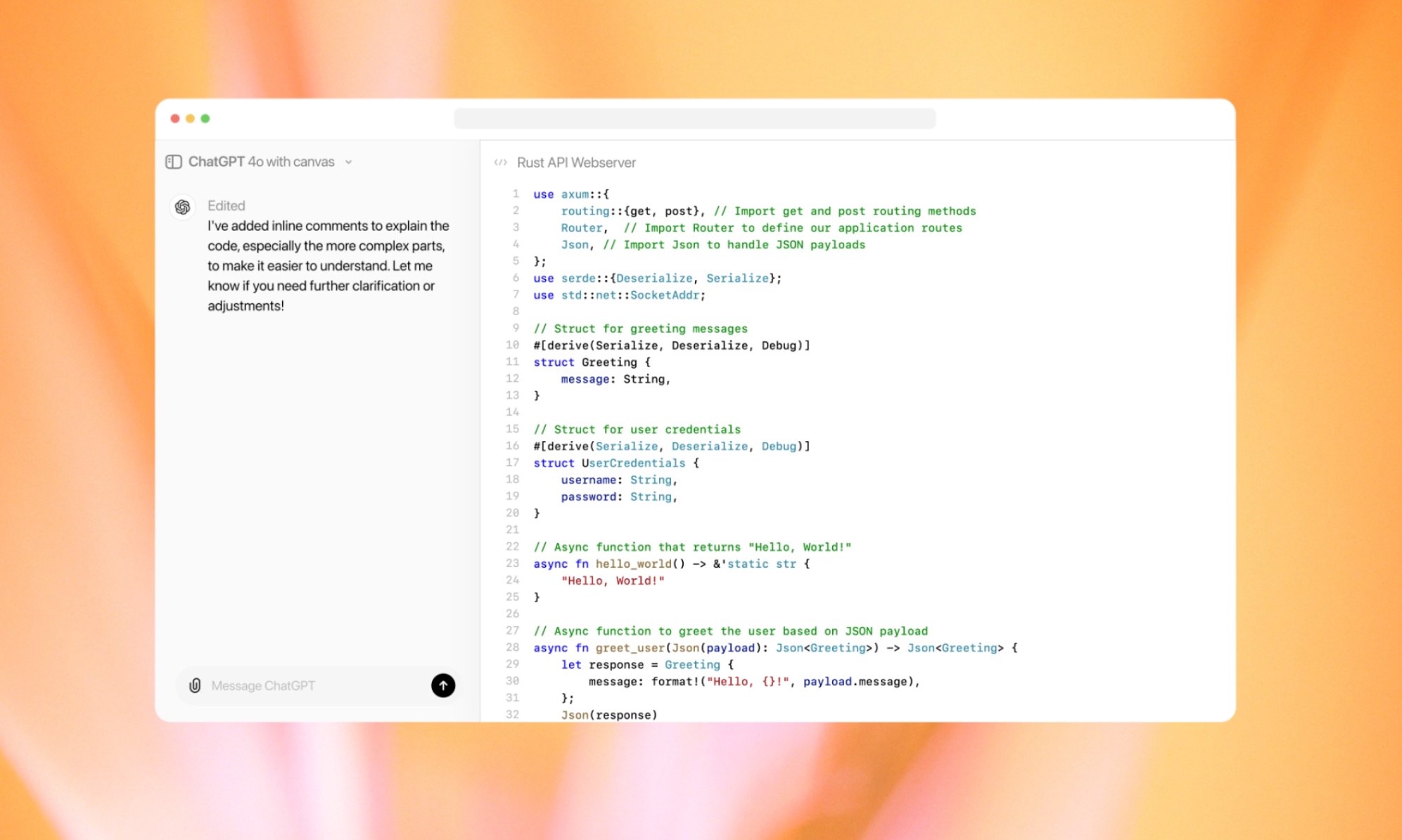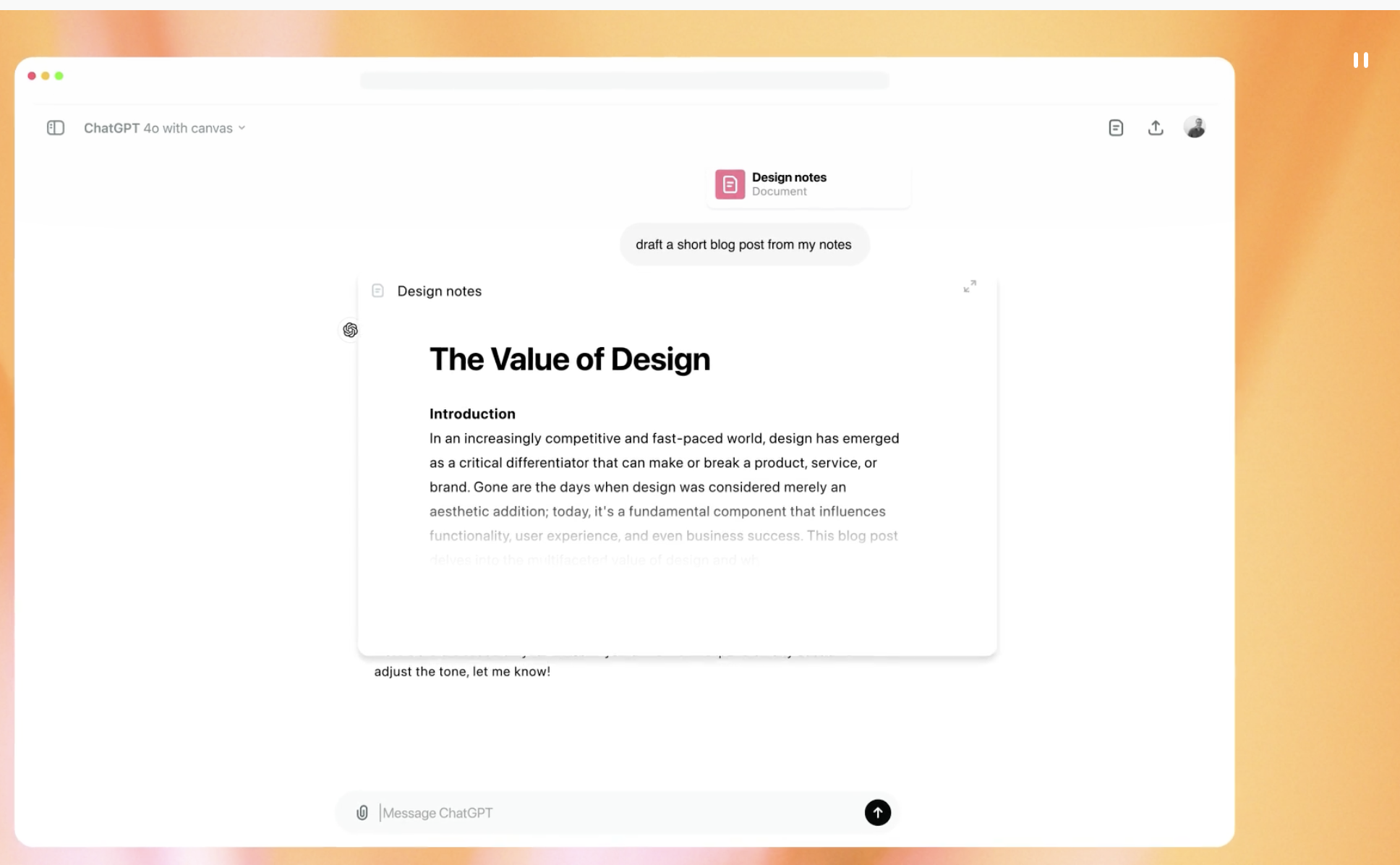OpenAI Launches Canvas: A New Interface for Writing and Coding Collaboration
San Francisco/New York – OpenAI has launched Canvas, a new interface designed to enhance collaborative projects with ChatGPT beyond simple chat. The new feature, available in a separate window, enables users to work alongside ChatGPT on projects requiring extensive editing and revision. Initially rolled out in early beta for ChatGPT Plus and Team users, Canvas will be made accessible to Enterprise and Edu users next week. There are also plans for a broader release to all ChatGPT Free users once it exits beta.

Taking Collaboration Beyond Conversation
Canvas represents a major advancement in how users engage with ChatGPT, enabling more hands-on collaboration, in-depth editing capabilities, and seamless integration of writing and coding tasks, transforming it from a conversational tool into a versatile workspace. With Canvas, users can directly edit text or code, highlight specific sections for ChatGPT's focus, and utilize various shortcuts to streamline writing or coding tasks. This enhanced interface serves as a virtual collaborator, providing inline feedback similar to a copy editor or code reviewer.
This feature-rich environment gives users greater control over their content, offering options to adjust writing length, debug code, and restore previous versions at the click of a button. Canvas can be automatically triggered by ChatGPT when relevant scenarios arise, such as when users request assistance with drafting or editing long-form content, or manually invoked by users seeking support on ongoing projects.
- Early beta for ChatGPT Plus and Team users
- Available to Enterprise and Edu users next week
- Planned release for all ChatGPT Free users after beta
- Hands-on collaboration in a separate window
- In-depth editing capabilities
- Seamless integration of writing and coding tasks
- Inline feedback similar to a copy editor or code reviewer
- Writing Tools: Edit suggestions, reading level adjustments, content length modification, grammar enhancement
- Coding Tools: Code review, debugging logs, comment insertion, bug fixing, language porting
Enhanced Tools for Writing and Coding
Canvas offers a comprehensive set of tools tailored for both writing and coding tasks:
- Writing Tools: Users can ask ChatGPT to suggest edits, adjust reading levels, shorten or lengthen content, enhance grammar and clarity, and even insert emojis for added emphasis.
- Coding Tools: Coding shortcuts empower users to review code, add debugging logs, insert comments, fix bugs, and port code to different languages, including JavaScript, Python, and C++.
With Canvas, users can more effectively manage revisions, track changes, and collaborate iteratively—making the process of writing and coding more fluid and accessible.

Training the Model as a Creative Partner
The development of Canvas is powered by GPT-4o, which has been specifically trained to function as an intuitive collaborator. This model understands when to open a canvas, when to make targeted edits, and when to perform full rewrites. Achieving this capability involved over 20 automated evaluations and the use of novel synthetic data generation techniques to enhance decision-making.
The OpenAI research team focused on refining the model’s ability to correctly trigger Canvas for writing and coding tasks while avoiding unnecessary triggers for simpler requests. With 83% and 94% accuracy for writing and coding triggers respectively, the model's assistance has vastly improved compared to its earlier versions.
The model prioritizes targeted edits based on user interaction, ensuring that its actions align with user intentions—whether suggesting focused changes or rewriting content when necessary.

The Future of AI Collaboration
Canvas marks a significant milestone in the evolution of AI-human interaction. As the first major update to ChatGPT’s visual interface in two years, Canvas introduces a more dynamic and user-centric experience for handling complex tasks. Though still in its early beta stage, OpenAI plans to further develop and refine Canvas by adding features such as advanced version control, improved collaboration tools, and enhanced integration with third-party applications, making it increasingly powerful and accessible to a wider audience.
With Canvas, OpenAI aims to redefine the role of AI as an active, creative partner—setting the stage for more interactive, imaginative, and user-centered AI experiences.





